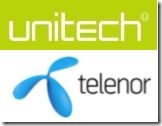Egypt’s sole fixed-line operator, Telecom Egypt, saw first quarter profits to end-March surge 72 per cent year-on-year due to its 44.95 per cent stake in mobile provider Vodafone Egypt. The state-owned operator today reported profit of EGP961 million (US$171 million), with the Vodafone business contributing EGP350 million.
Vodafone contributed a significant amount to Telecom Egypt’s profitability in Q109
“Telecom Egypt continues to benefit from its investment in Vodafone Egypt, which has increased its customer base by 35 per cent and total voice minutes by 36 per cent year-on-year,” company chairman and CEO Akil Beshir said in a statement.
Consolidated revenues increased by six per cent over the period to EGP2.5 billion, with wholesale revenues growing 11 per cent to EGP1.05 billion and accounting for 42 per cent of the company’s total revenues.
Beshir stated Telecom Egypt is still on the hunt for an acquisition in the Middle East and North Africa region, and preferably one that is an integrated mobile and fixed-line player. The operator currently holds a cash balance of EGP1.8 billion with a net debt of EGP2 billion.
“We aren’t in a net cash position yet, we still have debts but our debt to EBITDA is very low, which means we have room to raise cash,” Beshir told press.




